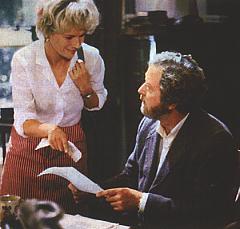Google Answers “Is Longer Better?”
In our Checklist for Writing a Blog Post, we talked about the post length and advised 300 words. We also showed you that 300 is quite a lot. But you might have read advice from SEO experts that you need at least 600 words to rank well; as if 600 words of verbosity automatically scores better than keeping it simple. Well they may be right and I may be crazy but … I don’t think so.
 Google does not use word count as a ranking factor. It’s quality over content every time. In fact, John Mueller from Google stated on Twitter recently that “Word count is not indicative of quality.”
Google does not use word count as a ranking factor. It’s quality over content every time. In fact, John Mueller from Google stated on Twitter recently that “Word count is not indicative of quality.”
In the past, there has been no doubt that long articles have ranked better than shorter ones. In fact some SEO experts advise taking articles that rank OK and adding even more content (and keywords) to make it longer to rank even better. They may not be completely wrong but the emphasis on word count is.
Say what you have to say. Keep it concise. Keep to the point. Keep it simple. Stop.
Google has recently issued new Quality Rater Guidelines, which are the guidelines used by Google employees undertaking manual rating of pages (yes that is a thing). We can only assume the guide reflects the logic of the Google Algorithm itself. Most notably, they state a page is low quality if there is an “unsatisfying amount” of main content for the purpose of the page. Here, unsatisfying means too little. This might make some people think more is in fact better. However, their guidelines also state that high quality pages need to have a “very satisfying amount of high or highest quality” main content.

To put this in context, you need to consider your topic. To digress, into not quite verbosity but hopefully entertainment, let’s look at Educating Rita.
In the film, literature professor played by Michael Caine talks to his working class student and hairdresser Rita (played by Julie Waters who currently starring in Mamma Mia! Here We Go Again) about the essay she submitted.
This is what follows:
MC: Yes, well, now … In reply to the question, ” Suggest how you would resolve the staging difficulties inherent in a production of Ibsen’s Peer Gynt'” you have written, quote,
“Do it on the radio. “
MC: “Well”, he says.
JW: “Well what?”
MC: “Well, I know it’s probably quite naive of me but I did think you might let me have a considered essay.”
…
MC: “Rita, you can’t go on producing work as thin as this, not if you want to pass an exam. “
JW: “I thought that was the right answer. I sort of encapsulated all me ideas into one line. “
MC: “It’s the basis for an argument but a single line is not an essay. You know that as well as I do. “
[She move away and writes for a moment …]
JW: “I’ve done it.”
MC: “You’ve done what? “
JC: “Me essay. “
MC (reads): “In attempting to resolve the staging difficulties in a production of Peer Gynt I would present it on the radio because, as Ibsen says, he wrote it as a play for voices, never intending it to go on in a theatre. If they had had the radio in his day, that is where he would have done it. “
Sense of humor aside, Google would consider, “do it on the radio” low quality as the topic deserves more time and effort. In fact they state creating high quality main content “takes a significant amount of at least one of the following: time, effort, expertise, and talent/skill.” So don’t “do it on the radio” when an essay is expected. Write as much or as little as the topic deserves. Then stop.
Need help with your blog writing? Contact us!




